Creating a Report in Java
This provides instructions on how to create a custom report in the Java version of Chronicall. Access to this feature requires the Custom Reports module.
With the Custom Reports module, you will be able to create as many customized reports as you would like. Creating a report is simple, but when doing so, plan accordingly because it may take time because of the overall abilities and options that it provides.
Custom Reports Window
To create a report:
- Under the Reports section on the Chronicall main menu, select "Create Report."
- Select the desired style of report you wish to create (see Report Styles).
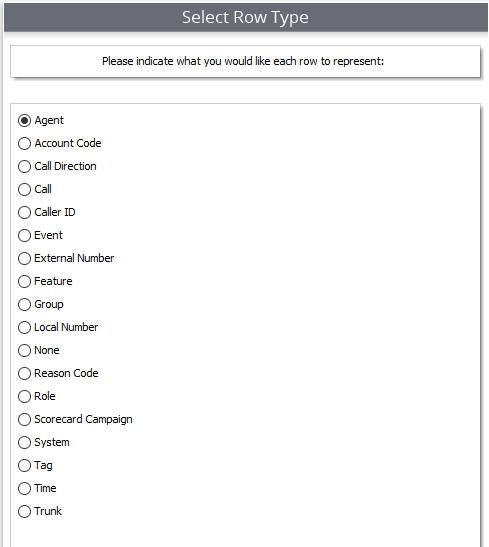
- Select your desired style of report; hit "Next."
- A window will appear that will provide the option to "Define Report Fields."
- Hit "Add" and a "Add Report Column" window will appear.
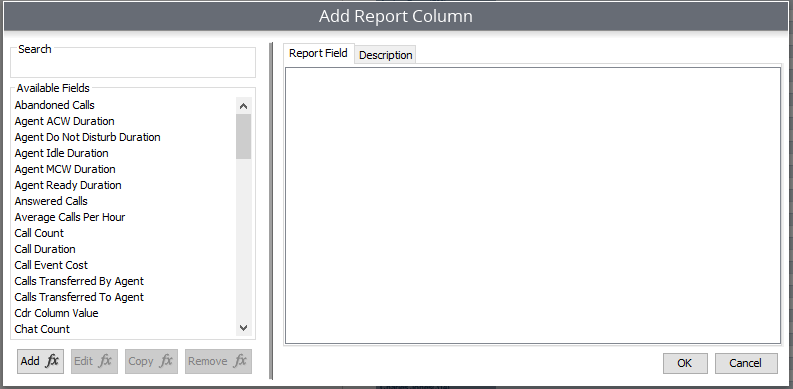
- Select the metrics that match your desired report.
As you select the different options from the left-hand side, metric criteria will appear on the right-hand side. This provides you further customization. You may leave the metric as the Chronicall metric or set the criteria that fits your desired metric.
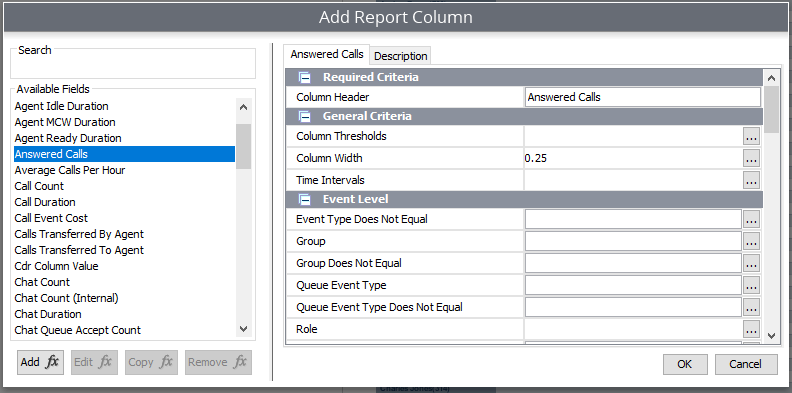
Example:
If the metric doesn't match exactly what you want to see, you can "edit" the definition. During this step, we will walk through using the filters by creating a Hold Event count column.
- Select Event Count.
- Change the Column Header name to Hold Count.
- Select the ellipses to the far right of "Event Type."
- Select "Hold."
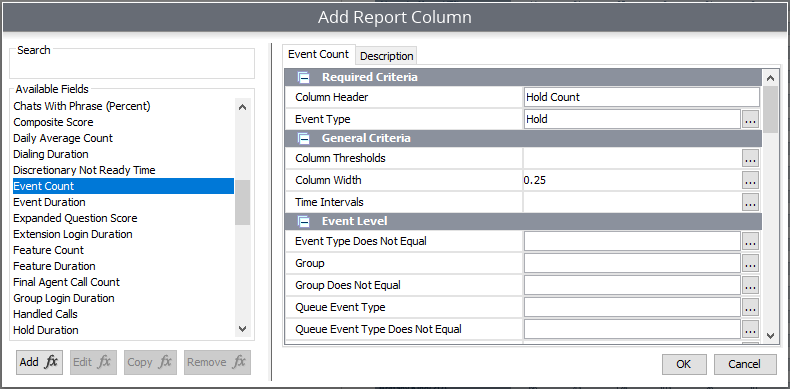
You can alter any metric you wish.
You will even have the option to create your own formulas by selecting the "Add Formula" (Add fx) button (see Creating Custom Formulas).
- As you finish selecting and customizing the metrics, hit "OK" and the column will appear on the sample report on the right.
- When you have finished adding your metrics, hit "Next."
You can add an overall summary to your report, found within the top right-hand corner of report. Check all of the boxes that you would like to apply to the overall summary.
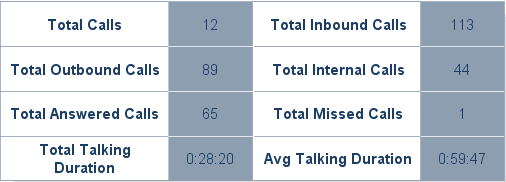
- Check all of the boxes that you would like to apply to the overall summary.
- Hit "Next."
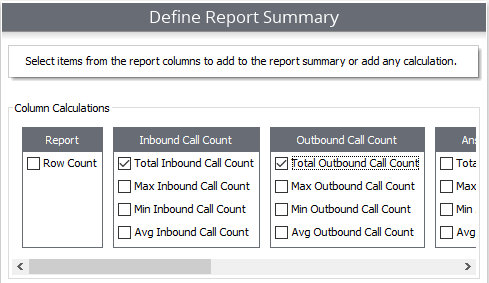
- Select your required parameters.
- Report Title - Name the report
- Orientation - By default, the report orientation will be portrait, but it can also be run as landscape
- Default Parameters - In addition to the required parameters, you will have the option to fill in the Default Parameter metrics. These are the questions that will be answered to run the report when the report is finished. You can answer here under Default Parameter Metrics, or you can wait until you hit "Finish." You will then be taken to "Run Report" where you can then fill in the metrics.
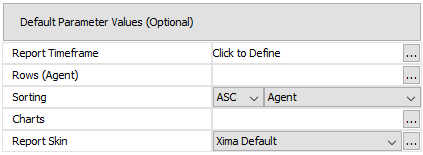
However, sorting cannot be done unless you are creating/editing a report and it requires the Custom Reports module. With this, you will have the option to sort the report to your liking.
- Hit "Finish."
The completed report can now be run and scheduled just like any Standard Report. If changes to this report need to be made in the future, simply select the report in your "Standard Reports" list, and right-click, then hit edit.
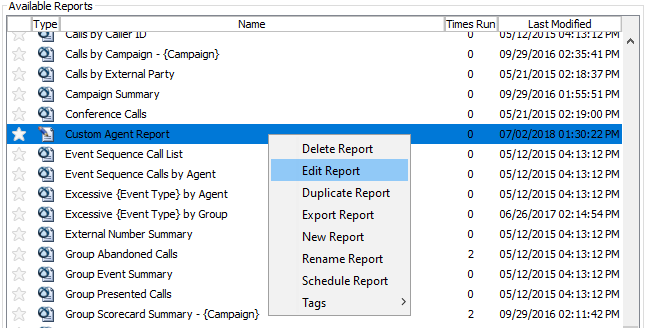
Updated about 2 months ago